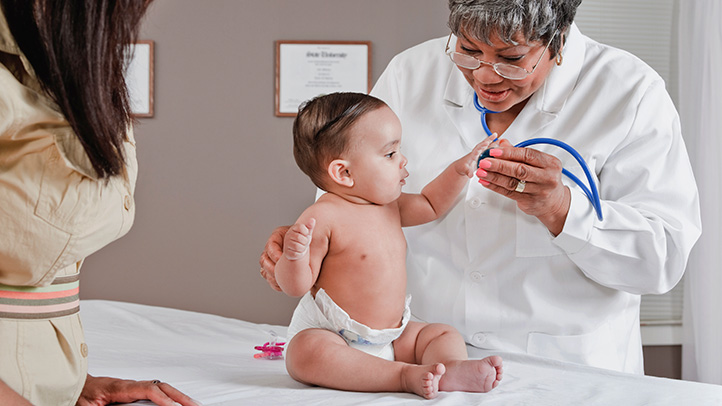Hepatitis B is a vaccine-preventable liver infection caused by the hepatitis B virus. It can be spread through contact with the blood or other body fluids of an infected person. This can happen through sexual contact, needle/drug use, or from mother to baby at birth.[1]
Babies born to mothers with the hepatitis B virus (HBV) are at a high risk of infection if they aren't vaccinated at birth. Those infants who become chronically infected with HBV can get other potentially serious or even life-threatening illnesses such as cirrhosis (scarring of the liver), liver cancer and liver failure. In the U.S., an estimated 862,000 people have chronic hepatitis B.
The good news is that the spread of the virus from a mother to her infant can be prevented through vaccination.
What is the hepatitis B vaccine?
The HepB vaccine is a multi-dose shot that protects against hepatitis B for life.[2]
The Centers for Disease Control and Prevention (CDC) recommends that all babies get the hepatitis B vaccine.
Since the vaccine protects a person for life, giving your baby the shot at birth and completing the whole series means you'll never have to worry that your baby will become infected with the hepatitis B virus.
When should babies get the hepatitis B vaccine?
Doctors recommend that your child get all the scheduled doses of the hepatitis B vaccine for best protection. Ask your doctor when your child should get the next vaccine. Typically, children get one dose at each of the following ages:
- Within 24 hours of birth (or within 12 hours of birth for babies born to HBV-infected mothers)
- 1 to 2 months old
- 6 to 18 months old
Your child may get a fourth dose depending on the brand of vaccines the doctor uses or if your baby was underweight at birth. All children and teens up to 18 years of age who haven't yet gotten the vaccine should also be immunized.
Read This Next
Discuss any concerns about vaccination with your doctor. Your practitioner can explain the benefits and consequences of vaccination and hepatitis B and even discuss its proven safety over time.





 Trending On What to Expect
Trending On What to Expect






